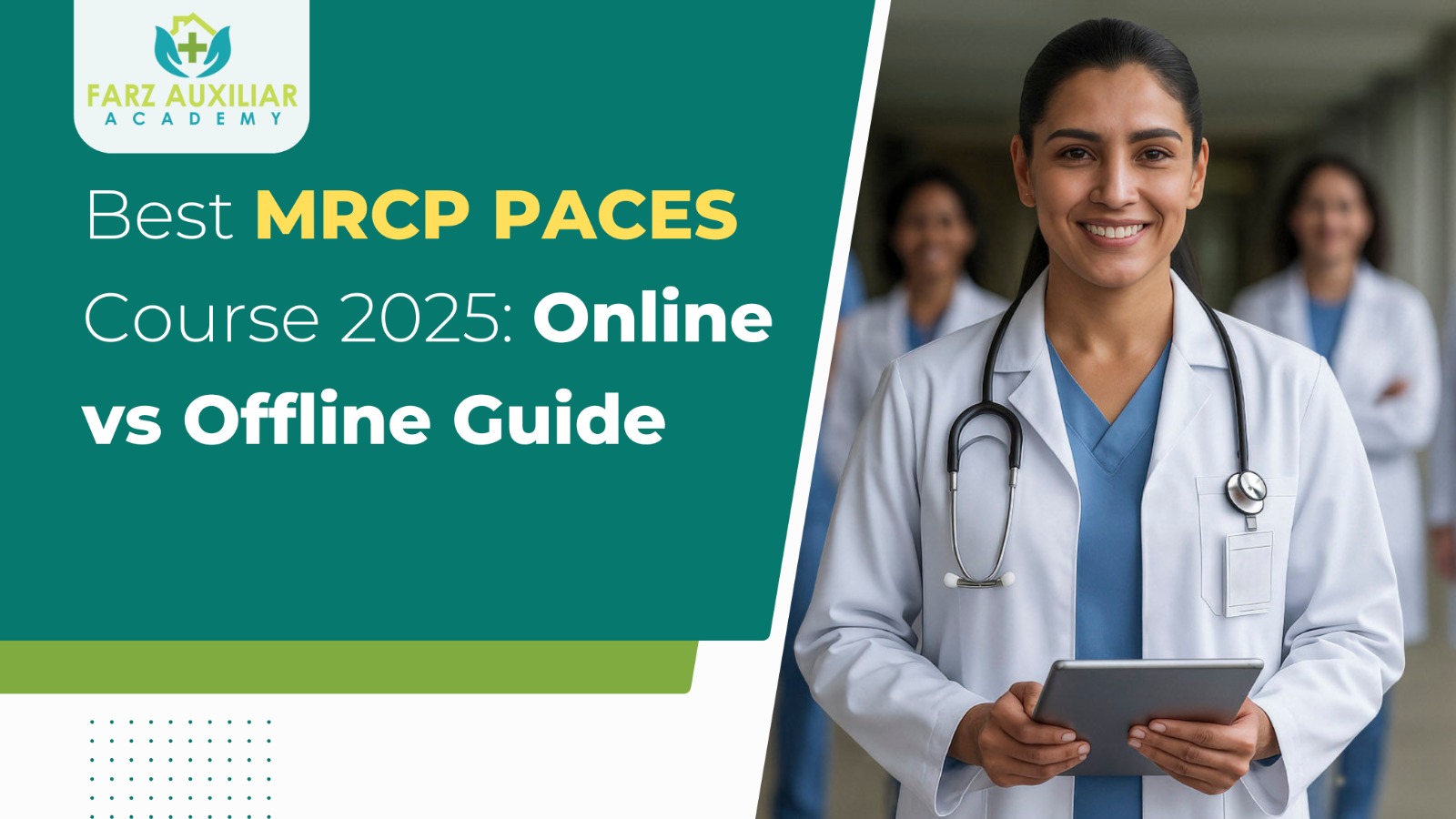
Best MRCP PACES Course 2025: Online vs Offline Guide
Are you preparing for the MRCP PACES exam? Discover whether an online or offline course is best for you, and learn about the latest PACES23 format and expert tips for passing on your first attempt.
Are you preparing for the MRCP PACES exam and wondering whether to choose an online or offline course? This guide will help you understand the differences, benefits, and the latest updates in the PACES format, so you can make the best decision for your career.
What is MRCP PACES?
The MRCP PACES (Practical Assessment of Clinical Examination Skills) is the final examination required to become a GMC-certified doctor. It's designed to assess your clinical skills, diagnostic reasoning, and communication abilities in real-life scenarios with patients. Passing PACES is a significant milestone, reflecting your competence, knowledge, and commitment to patient-centered care.
Why is PACES Important?
- Career-defining milestone for doctors
- Assesses both knowledge and hands-on skills
- Required for GMC certification
Key Skills Tested in PACES
- Clinical Examination: You'll be assessed on your ability to examine different systems—Cardiovascular, Respiratory, Neurology, and Abdominal. The focus is on detecting signs, interpreting findings, and prioritizing diagnoses.
- Communication: Explaining diagnoses, test results, and treatment plans with confidence and empathy is crucial. You'll also be evaluated on your ability to address patient concerns and interact professionally with relatives and healthcare colleagues.
PACES 2023/2025: What's New?
The latest PACES format (PACES23) features five stations covering eight clinical encounters, with a carousel-based rotation and a greater emphasis on communication and decision-making. Each station lasts about 20 minutes, with additional time for reading and analyzing clinical scenarios.
- Carousel format: Candidates rotate through 5 stations without long breaks.
- Integrated scenarios: Increased focus on combining communication with clinical reasoning.
- Diverse cases: A broader range of cases now appear, reflecting global practice.
Offline MRCP PACES Courses: Advantages
- Real Patient Interaction: Practice on real patients, not just simulations. This builds the confidence needed for the actual exam.
- Immediate Feedback: Get tips and corrections from experienced tutors who know exactly what examiners are looking for.
- Simulated Exam Conditions: Build confidence in a real exam-like setting, reducing nerves on the big day.
- Peer Learning: Learn from and with other candidates, sharing ideas and techniques in a supportive environment.
Online MRCP PACES Courses: Advantages
- Flexibility: Study anytime, anywhere, at your own pace.
- High-Quality Content: Access comprehensive materials and expert tips for each station.
- No Travel Needed: Save time and money by learning from home.
Which Course Format is Right for You?
If you thrive on hands-on practice and real-time feedback, an offline course is invaluable. If flexibility and convenience are your priorities, an online course is the way to go.
| Feature | Offline Course | Online Course |
|---|---|---|
| Real Patient Practice | Yes | No |
| Flexibility | Limited | High |
| Immediate Feedback | Yes | Sometimes (via chat) |
| Cost | Higher | Often lower |
| Peer Support | In-person | Online forums |
Expert Tips for Passing MRCP PACES
- Choose a course that fits your learning style
- Practice clinical exams regularly
- Work on communication skills
- Simulate exam conditions
- Seek feedback from mentors

